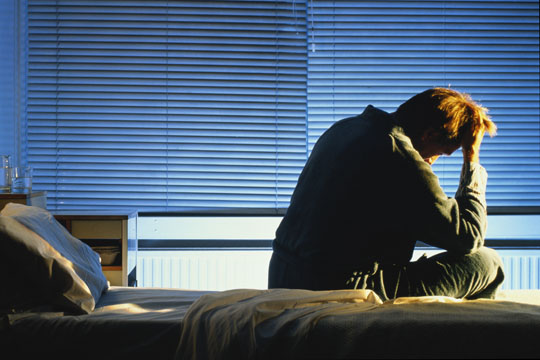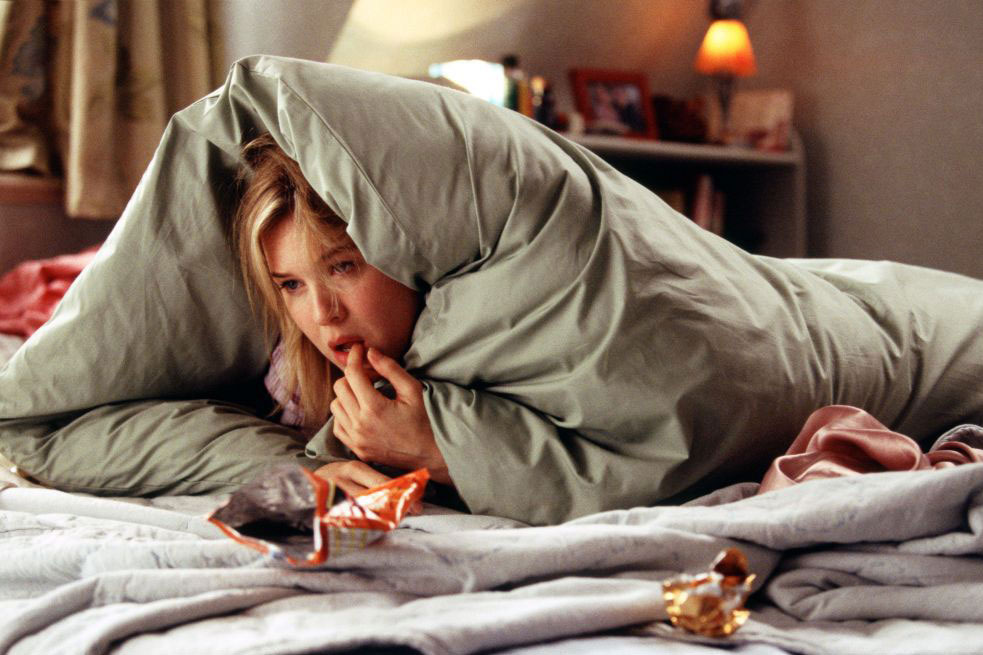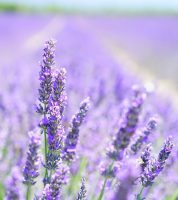NOTE: This is a long, information-packed article. To make it easier to navigate, use the Table of Contents button to your right!
Common Insomnia Causes
You know you have insomnia, and you likely have tried all kinds of insomnia treatments to cure it. The problem is, if you don’t know what is causing insomnia, it will appear again and may be worse than the last time. There are a few common insomnia causes that you may not recognize in your day-to-day life, or that you may not have thought of at all. Here are a few and what you can do to stop them.
Stress and Anxiety
One of the leading causes of insomnia can be attributed to stress and anxiety. This may come from daily issues, an ongoing anxiety issue, or from issues you may be concerned about in your life. The major problem with stress and anxiety is that it leads to many body issues as well.
You can experience headaches, backaches, muscle pains and spasms, and also insomnia. One way to deal with the stress and anxiety is to journal. You also can use calming techniques such as breathing or you can simply find the source of the stress and remove yourself from that source.
Digestive Issues
Digestive issues are something that many people do not consider when they think about their insomnia issues. The truth is, if your body is having digestive issues you may find yourself experiencing several related problems.
These can be muscle pain, stomach cramps and pain, heartburn, and indigestion. In mild forms, these issues can alter your ability to fall asleep. In major cases, you may experience severe heartburn or stomach cramps that keep you awake at night and cause insomnia.
Outside Noises
Outside noises like having the television or radio on can be one of the often-overlooked insomnia causes. For example, if you have your favorite show playing through a headset or on the television, you may think that it isn’t disturbing your sleep. The truth is, different levels of noises throughout the show can cause a disturbance and keep you from achieving restful or deep REM sleep.
You may notice one or all of these common insomnia causes in your daily life. Once you make the proper steps to removing them or reducing their effects, you can begin on the path to restful sleep. If you notice the problem occurring again, consider journaling as a way to detect ongoing stressors in your life or issues that coalition with the time insomnia started. This will help you remove them and move on.
The Link Between Stress and Insomnia

When you read about restless sleep and insomnia you may see a lot about stress being mentioned. Journaling to remove your stress, finding your stress triggers, and dealing with stress before sleep are all common statements. What you may not know is how your stress connects to insomnia.
For some people, the connection is more important than removing the stress itself or the connection becomes the stepping stone to removing the stress and moving on. Here are some quick facts about the link between stress and insomnia and some ways to help remove that connection in your life.
Stress Causes Body Aches
Stress in your daily life can affect your body as a whole. One of the ways that it does this is by causing tension in the muscles and joints. This tension results in body aches. You may think it just stops there, but it doesn’t. These body aches can lead to one of two issues.
The first issue is that it could lead to you taking doses of pain medication ranging from ibuprofen to prescription medication. This can lead to sleeping issues or sleep pattern disturbances. In addition to this issue, you may develop issues like restless leg syndrome or muscles aches that lead to cramping and cramping that leads to increased pain and sleep issues.
Stress Causes Digestion Issues
Stress can cause digestion issues. These issues can range from a nauseous feeling to more intense issues like Irritable Bowel Syndrome. This can lead to cramps in your stomach and intestines. It can also lead to gas, heartburn, and even chest pain related to digestive tract issues.
All of these things can affect the sleep and keep you awake or wake you up from a deep sleep and keep you awake for several hours. It also means taking an increase in medications to help with your digestion that can also play into your sleep patterns.
Stress Causes Anxiety and Depression
Anxiety and depression are two of the key issues that can affect your sleep. For example, you may be lying down and feeling tired. Once your head hits the pillow, that is when depression and anxiety can strike.
It can cause you to have deep depressive thoughts, and it can lead you to severe anxiety or panic attacks that can last for several hours. This stress can be due to a number of issues. It can be something mild that you may not even notice during your day.
These facts and methods are designed to help you find your stress triggers as well as the connection those triggers have to your insomnia. Once you know both the triggers and the connection, you can start breaking those down and move towards a restful sleep. You will also find that you see the triggers developing quicker, so you can fix them and end them before they start you down the path of insomnia again.
Avoid These Mistakes if You Have Insomnia

If you have insomnia, you may be trying different insomnia remedies or a treatment plan to reduce the occurrences. This may be a natural treatment plan or it may be one that you have developed with your doctor. Either way, there are some things you may be doing to derail your progress.
Here are a few of the mistakes that you may be making on your journey to a restful sleeping pattern and how you should avoid them. These may be just the tip of the iceberg for your mistakes, but they can get you started down a better and more long-lasting treatment path to your sleep goals.
Mental Over-Stimulation Before Bed
One of the biggest mistakes you may be making if you have insomnia is becoming mentally over-stimulated before bed. This can mean a number of things, but ideally, it refers to watching movies or television that keeps you thinking or overly interested in that will keep you awake.
It also refers to getting involved in things on social media, like political arguments, that can mentally stimulate you and keep you awake through either interest or stress. Ideally, you want to avoid this by having about an hour before sleep that is devoted to quiet and cycling your whole body down from a stimulated state to a restful state in order to help your sleep patterns.
Eating Before Bed
You may have heard that eating before bed can cause weight gain. Another issue with eating before bed is that it can cause you to feel uncomfortable and full. It can also lead to digestion issues at night that lead to indigestion, heartburn, and other digestive issues that can keep you awake.
You may even find that if you are eating before bed, you are having to go to the bathroom more at night, which wakes you up and disrupts your sleep. Instead, try not to eat at least an hour before bed to allow your body to settle and your digestive tract to settle down before sleep.
Medication for Sleep
Medication to help you sleep can be a huge mistake for some people. Even if you take a natural option like melatonin, you can find that your body is becoming addicted to it. Eventually, you may want to distance yourself from the medication and you may find that you can’t.
Your body doesn’t know how to sleep without the medication, even natural options, and you can’t step away. Now you not only have the issue of sleep problems, you have a medication addiction. Avoid this by trying foods and exercise to help your sleep pattern first.
These are just a few of the mistakes you may be making. The ideal way to deal with them is to work through them and start noticing other aspects of your life that may be causing issues with your sleep pattern and sleeping well. As you start discovering more factors that contribute to your insomnia, you can begin removing them and work towards a better sleep pattern and routine.
Healthy Habits that Encourage Better Sleep

Yoga Practice
For some people, the restless sleep is due to feeling tense or stressed from the day. This stress can rest in the muscles and throughout the body causing tension. That tension can lead to a score of other issues including headaches and muscle aches. Though turmeric milk can help with some of this, it doesn’t go for the root cause if that cause is stress and tension.
Consider the healthy habit of yoga as part of your daily practice. The stretching and breathing combination can help remove stress and tension, give you a focus that is not the stress of the day, and help remove tension from your body. Doing this before bed can be incredibly helpful towards a pattern of restful sleep.
Why You Should Try Yoga for Insomnia
There are many effective insomnia treatments, but combining exercise with meditation and stress release can be one of the more effective methods. This is an ideal option if you are limited on time in your daily schedule and want a more multi-task friendly treatment.
Yoga combines a stress relieving form of exercise with meditation and can be a cardio exercise as well, depending on the type of yoga you choose. Here are some reasons you should consider yoga as a viable option for your insomnia.
Tension Release
A leading reason that people use yoga in hopes of helping or curing insomnia, or as part of a restful sleep routine, is due to the tension release that yoga provides. Yoga poses and positions are generally designed to help increase flexibility.
Though these poses you will see how the stretching begins to release tension in your muscles and body in much the same way a full body massage may. You can even focus on poses that are specific to tension release if this is a huge issue for your sleep routine.
Full Body Exercise
 When you begin on a path to help your sleep, you may want to start with an exercise routine. The idea behind most of these routines is to work the body and get it in better physical shape while giving you a rested and relaxed feeling that can translate to your sleep pattern. Yoga provides that full-body exercise and is ideal for someone that is not interested in the gym or high intensity workouts and instead wants to focus on relaxation techniques that benefit their whole body as well.
When you begin on a path to help your sleep, you may want to start with an exercise routine. The idea behind most of these routines is to work the body and get it in better physical shape while giving you a rested and relaxed feeling that can translate to your sleep pattern. Yoga provides that full-body exercise and is ideal for someone that is not interested in the gym or high intensity workouts and instead wants to focus on relaxation techniques that benefit their whole body as well.
Breathing Techniques
One thing you will learn from yoga are breathing techniques. You may not think these techniques are valuable to your sleep pattern and helping your insomnia, but they are. Breathing techniques can be used during yoga to help release tension. They can also be used outside of traditional yoga practice to help reduce tension and stress throughout the day and calm the body at bedtime.
Level Intensity
Some people avoid yoga because they want an exercise routine that can change and grow with them. They may want something that can start as a beginner option and work up to a high-level intensity as time moves on. Yoga can do this. There are various forms of yoga including Kundalini yoga that work the full body and give a high-intensity workout.
Keep in mind that yoga as large amount of styles that may work for you. Traditional yoga, though common, is not the only option you have. You also can practice most yoga forms at home, in the quiet and privacy of your own living room. You do not need special equipment, and you can alter it to suit your needs.
Turmeric Milk
One of the more effective insomnia remedies that can encourage better sleep is the addition of turmeric milk, sometimes called turmeric tea, at night. This milk is a simple cook turmeric paste mixed with warm milk and sipped on like a drinking chocolate.
The turmeric can help with inflammation and muscle soreness which can wake you at night and cause restless sleeping patterns. The turmeric milk can be taken anywhere from half an hour to an hour before bed to give it enough time to work through your system.
Detoxing Bath
A detoxing bath is something that may or may not be considered as a healthy habit, but it is. This habit helps remove stress from your muscles and relax your body as well as your skin. You may not think of skin as a necessary detoxing for better sleep but consider this: Skin can become dry, tight, and uncomfortable.
A detox bath can help with skin issues such as severe dryness and cracking. The bath can soothe the skin and moisturize it. Adding moisturizer to the skin following the bath can seal the benefits of the detox into your skin. Combine this with turmeric milk and yoga practice can be a triad combination that works ideally for your sleep issues.
Keep in mind that any habit takes around a month to put in place and keep in place as part of your daily routine. Give yourself time to adjust to the new healthy habits and give the habits time to work. This will help you reduce stress and give you a goal in mind for each of the habits.
Journaling for Insomnia

Journaling is something that may bring to mind a diary-style daily entry about your thoughts. For many people, journaling is much more than that. Journaling is a way to map out issues, find triggers in their life, and remove negativity from their day.
For someone with sleeping issues, it can be the very tool that helps them remove the sleeping issues so they can move on to better more restful sleep. If you have heard that journaling may help your sleeping issues, but you may not know how, here are some ways to consider.
Finding Triggers and Patterns
One of the leading reasons people use journaling to help with sleeping problems is to find triggers and patterns that are leading to the sleep problem. In fact, many people find that journaling helps to get to the root of their issues.
For example, you may think that your sleeping problems are triggered by your mind being too active at night. After journaling, you may find that your mind is too active, but it is due to an issue that is happening during the day. It may be work related, friendship related or just socially related. The point is, the triggers and patterns are not always evident and journaling can help you bring them to light.
Reviewing Your Treatment Plan
You have likely started a plan of insomnia treatments in order to combat your sleeping issues. This treatment plan may be natural, include diet and exercise, or it may include prescription medications. The issue with this is, that sometimes the combination of these treatment plans or portions of those treatment plans may not work.
By journaling, you can find out what is working, what isn’t working, and find ways to work around those problems in order to help your sleep patterns. You can also have a documentation of what is working and what isn’t to take to your doctor in order to help them assist you in finding alternatives.
Getting Stress Out Before Sleep
Journaling can help you vent the stress before you sleep. You can write about your day, problems you are having, and rant about what is going on without worry of a blowback from it. Yes, you can do this on social media, but you will open yourself up to opinions on your rant. This can actually cause more stress and more sleeping issues. A journal doesn’t judge and you can vent whatever you need to easily and in private.
These are just a few of the ways that journaling can help with sleeping problems. It does take some time and it does take the motivation to journal and use your journal properly. Once you get a routine down with journaling and the process, you will start to see improvement in your daily life and in your sleep patterns.
Create a Cozy Bedroom Space for Sleeping

One of the key ways people use to make sure they have restful sleep is to create a cozy bedroom space. This space should achieve several goals. It should provide you with a restful environment that you find calming and soothing. It should also provide you space that provides a sort of sanctuary even on the roughest of days. To create this type of space, you are going to need a few tips and tricks to get you started.
Go with Simplicity First
One of the first things you need to do is clean out the bedroom you currently have. Start from scratch and go for simplicity. This doesn’t mean getting rid of items or buying new items. What this means is that you are removing the clutter and starting with a fresh canvas of your bed, dresser, nightstand, and lamp.
Keep the distractions as minimal as possible. Try to remove extra blankets, extra pillows, decorations, and multiple paintings. All of this can be distracting and keep you focused on those items instead of sleep.
Consolidate Electronics
One of the first things doctors may ask when you visit them regarding insomnia and restless sleeping is how many electronics you have in the bedroom. This is because devices like televisions, radios, and cell phones can cause distractions to keep you awake or intrude on your REM sleep or deep sleep.
One thing you can do is consolidate your electronics to keep the distraction to a minimum, especially if you need something to help you sleep, like music. Consolidating can be easy. For example, remove the television, but keep a phone dock that acts as a charging station as well as an alarm clock and radio. This clears up clutter and gives you an option to use meditative apps for your sleep.
Diffuse the Bedroom
One way that many people have found to create a cozy bedroom space for sleeping is to diffuse the bedroom. This is a two-fold step. You will be diffusing the room with essential oils for insomnia while diffusing the light in the room to be much softer or fade off as you drift off to sleep.
One way you can do this is with a soft light essential oil diffuser. These diffusers can send your favorite calming essential oils for insomnia into the air while giving a soft light that is ambient and soothing. The combination can help you drift off to sleep easily and provide a cozy welcoming and safe environment for your senses.
You can use all, or some, of these tips to help you create a cozy bedroom space for sleeping. Remember, this is your space and you should make it the way you want. This means that even if something is suggested, you should not do it unless it works for you. We all have the methods that work for us and this is the one area of your home that should be 100 percent for you.
House Plants that can Help You Sleep Better
Preparing your home and bedroom for better sleep, to be more welcoming, and to be your sanctuary can be a daunting task. There are several steps to making it all work and come together and you may find that you are getting rid of a lot during that process.
In addition to removing items and creating a more comfortable and restful environment, you may also find yourself finding items that work for you that you never thought of as part of a sleep pattern. One of those items is a house plant. There are several house plants that can help you sleep better, and they can be placed around the home. Here are a few of them and how they help.
Aloe Vera
You may be thinking of aloe vera as a plant that helps with burns and scrapes. The truth is aloe vera can also help your living environment by improving the air quality. You may be wondering how improved air quality can help you sleep better.
If you have pure air, clean air, or at the very least cleaner air then you will notice an improvement in your breathing and respiratory system as a whole. This improvement can help you with better sleep. You will experience fewer allergies and you will experience less congestion issued during the course of the night.
Snake Plant
Snake plant is a green stiff leaf plant with a yellow border on each leaf. This leaf can grow in most household environments. It is, however, native to West Africa. It can help with a number of issues that cause sleep-related problems including insomnia.
Snake plant can help reduce headaches that cause sleepless nights and the need for heavy pain medication. It an also help with eye irritation and allergy related issues that may cause the need for medication that can interfere with sleep. You can keep one of these plants in each room to help with overall air quality.
Lavender
Lavender is in nearly every list for plants, herbs, and natural sleep remedies. There is a reason for this. The misconception is that lavender helps you drift into sleep. The truth is, lavender helps remove anxiety and stress from your environment.
This can be of greatest benefit to small children with nighttime anxiety, sleep anxiety, or with fears of the dark. It can also be of greatest benefit to adults who are experiencing night triggered anxiety and depression and may need the calming effects of lavender to help soothe them into a calm state that leads to sleep.
These plants can be placed throughout the home or just a few in your bedroom area. The idea is to create a relaxing environment that works with your sleep treatment or sleep routine. You can add more as time goes on and as you find which plants work for you.
Super Foods for Insomnia

Having trouble sleeping is one of the most frustrating things to deal with, whether you can’t fall asleep or you have difficulty staying asleep. Lack of sleep is not only frustrating because it causes a lot of fatigue and restlessness during the day, but it can affect your physical and mental health.
Dark Chocolate
This amazing brown candy is good for more than just a treat, it is also high in antioxidants. As one of the top superfoods for insomnia, it can also play a hefty role in helping you sleep. Studies have shown that people who consume 40 grams of dark chocolate a day for two weeks saw a decrease in cortisol, a hormone produced when a person experiences stress. This could be possible due to its magnesium content which aids in regulating stress, muscle spasms, and anxiety.
TIP: You can try eating it as a dessert with your favorite berries for a healthy snack option, eat it alone, or make some dark hot chocolate on cold nights.
Chamomile Tea
This tea has long been associated with its calming and mild sedative effects. It is speculated that it may be because of the flavonoid apigenin, which has the ability to bind to benzodiazepine receptors located in the brain. There are a variety of caffeine-free teas available on the market.
TIP: You can use honey, lemon or mint to give your tea a different flavor.
Cheese
It has often been said that milk can help you sleep, but science has revealed that all dairy contains tryptophan. Cheese is also an excellent source of calcium which helps to regulate muscle movement.
TIP: You can try eating cheese on a few of your favorite low-calorie crackers for a light snack about an hour before bedtime.
Walnuts
Walnuts are one of the powerhouse super foods for insomnia that contain an amino acid called tryptophan. Tryptophan is responsible for the production of serotonin and melatonin, which are key components of controlling sleep cycles. Interestingly, it has recently been discovered that walnuts contain an amount or melatonin on their own. The great thing about walnuts is that they fit in with most diets, from low calorie to low carb, Keto, and even Paleo.
TIP: Add a handful of walnuts to a half cup of Greek yogurt for a great snack or enjoy them with some of your cheese to help you sleep even better.
Lettuce
Lettuce is great with almost every food and it turns out that it can fill a number of dietary needs for trace minerals, but the real secret of lettuce is lactucin. Lactucin is sometimes referred to as “Lettuce Opium,†and has mild sedative effects.
TIP: Top some chips with thinly sliced lettuce and grated cheese for some easy bedtime nachos!
Almonds
Almonds are a great low-calorie snack that is high in fiber. They are also extremely high in magnesium, which is needed for a variety of body functions. They are also associated with headache relief, which can be a great aid to relaxation and sleep.
TIP: You can get whole or sliced almonds to add to some yogurt. You can even add walnuts to add more texture.
Turkey
This is probably the most famous example of food containing tryptophan. Turkey is famous for its sleep-inducing effect, commonly and somewhat endearingly referred to as a food coma. It can be fried, baked, broiled and barbecued. It is also a cost-effective solution for meat-eating families.
TIP: You can use leftover turkey in a variety of ways. Keep some sliced in sealed bags for easy use in sandwiches and other delicious dishes.
Banana
It’s a little-known fact that bananas also contain tryptophan. This elongated, fleshy fruit can be prepared in a variety of ways and contains enough tryptophan to help give you a noticeable and natural feeling of calmness.
TIP: Use a blender to whip a banana, milk and two teaspoons of honey for a delicious shake. Add a tablespoon of organic peanut butter for more protein.
Kale
Although this coarse green vegetable is a favorite among many health enthusiasts, most wouldn’t think of it as one of the super foods for insomnia. But it is yet another green vegetable that is a great source of magnesium and its positive effects. Kale is also high in fiber which aids in proper elimination and digestion, thus helping you to relax and be more comfortable for a good night’s rest.
TIP: Try adding kale to your smoothie of choice. Fruit such as apple are very good at masking the bitter flavor of kale.
Oats
This staple food is a major component of recipes all over the world, yet few see it as an evening food on its own. Eating a bowl of oats in the evening will give you a generous helping of melatonin, which helps the body to relax in preparation for sleep. Oats are also great for heart health, a key component in fighting physical anxiety symptoms.
TIP: Try adding a banana to your oatmeal. That will add some flavor along with the combo punch or sleep-inducing tryptophan.
Tuna
This easily palatable fish contains an essential vitamin called B6 that is needed for the formation of melatonin. Omega 3 fatty acids are known to help fight depression, regulate anxiety, and weight. Omega 3 fatty acids are essential for human health and cannot be made by the body. They also help the heart to keep a controlled rhythm and facilitates the conversion of tryptophan to niacin which prevents various anemias and other deficiency diseases.
TIP: A tuna salad for dinner will give you both the benefits of the omega 3, B6 and Lactucin.
Cherries
These sweet little fruits are a flavorful and delicious way to get your dose of melatonin.
Many people simply eat them, both as snacks or in a fruit salad. Others are more prone to drink it in a juice form, as studies have shown that drinking 2 cups of very tart cherry juice a day can extend sleep time by as much as 90 minutes per night.
TIP: No need to juice it yourself, there are several organic cherry juice brands are available for purchase!
Rice
Foods like rice with a high glycemic index are excellent when you’re looking for a quick road to deeper sleep. According to some studies, jasmine rice is the best rice for getting to sleep quickly.
TIP: Try eating rice about 4 hours prior to bedtime. This allows for the insulin spike to peak and fall in time for you to hit the pillow!
Honey
For all recorded history, honey has been celebrated as the world’s most amazing and useful sweetener for its uses in medicine and the world’s oldest treats, but this delightful golden substance earned its place on this list because it contains orexin. Orexin regulates alertness and arousal. The natural relationship with orexin changes in amount helps us to become tired and limit brain functions allowing humans to sleep.
TIP: Add some honey to your oatmeal, and you have a naturally sweetened sleep aid!
Hummus
The main ingredient in this delectable 13th-century snack is the garbanzo bean. These versatile beans are high in B6, which is a key to melatonin production. They also regulate appetite which aids in calming the body and preparing it for sleep.
TIP: Lettuce wraps made with hummus and a sprinkle of cheese can help get you in the mood for bedtime, or you can go traditional and just cozy up to hummus with your favorite crackers.
Elk
Though not always available, this tasty meat contains nearly twice the amount of tryptophan as a turkey. Elk meat is extremely lean when compared to beef, but has a similar taste. This makes it easy to use as a low fat, low cholesterol substitution for beef.
TIP: Because of the low-fat quality of this meat, it can dry out or over cook very easily. Cook it hot and fast to retain the texture, moisture, and flavor of the meat. Pair it with a complex carbohydrate.
Pretzels
These little salty snacks are famous for being used in snack mixes or on their own for a quick pick me up. Due to their high glycemic index, a small snack of pretzels will give you a quick burst of energy, followed by a crash. That crash will make you sleepy and your body will be more prepared for sleep.
TIP: Eat a small portion about 1 hour before bed.
Passionfruit Tea
This refreshing tea is full of powerful antioxidants and trace minerals. Research has also shown that people who consume passionfruit tea are likely to sleep more easily. It is currently speculated that the alkaloids in the tea act as Monoamine oxidase inhibitors. These alkaloids play a large part in managing depression, which can aid in relaxation and lead to better sleep.
TIP: Try adding lemon, honey or ginger to your tea to create a new adventurous flavor!
Lobster
Crustaceans like lobster aren’t immediately associated with restful sleep, but crustaceans are high in tryptophan.
TIP: Try adding garlic bread with fresh garlic to get the vitamin B6 tryptophan needs to become serotonin and carry you off to sleepy land.
Alternative Medicine Therapies as Insomnia Treatments
3 Essential Oils for Insomnia
Over-the-counter medications, prescription sleeping drugs, and even natural herbs for insomnia may all be on your list of things you have tried or will be trying for your sleep problems. This is especially true if you are having long-term issues with this sleeping illness.
One thing you may not have thought about is the use of essential oils for insomnia in your treatment plan. Here are a few of the less common essential oils for insomnia that may help you with your sleep challenges and how you can use them.
Vetiver Essential Oil
Vetiver is a plant that has been used as a medicinal option in eastern medicine for hundreds of years. The plant is generally used for calming the mind, helping with ADHD issues, and providing an uplifting feeling through a natural method.
You can get this same benefit as part of a treatment plan for your insomnia. The most common way to do this is through either topical or diffusion methods. If you are using vetiver topically, you will want to apply one drop to each pulse point on your body. Your pulse will move the skin slightly and release the oil into the air around you. You can also put the oil into a diffuser and get the same benefits.
Bergamot
 Bergamot is an essential oil that is specific to the issue of reducing tension in the mind. If you have a high-stress job or you have experienced a lot of emotional stress over a short period of time, then this may be the ideal option to help with your temporary insomnia.
Bergamot is an essential oil that is specific to the issue of reducing tension in the mind. If you have a high-stress job or you have experienced a lot of emotional stress over a short period of time, then this may be the ideal option to help with your temporary insomnia.
The best method of using this is either in a tea mix along with something like an earl grey or orange blossom spice tea or you can diffuse it. If you choose to drink it, add two drops to your tea of choice and mix. Make sure the oil is organic and high potency.
Roman Chamomile
Roman chamomile is known for the benefits it offers when you use it in a tea form. It can help calm your mind and your nerves. In some cases, it can help with minor to mild anxiety or depression as well. If you do not like chamomile used in tea, you may be surprised that it can also be used topically. The scent works just as well as the tea on helping your body relax and can be a great addition to your sleep routine.
These essential oils can be used as stand-alone options or in combination with other oils. The goal is to make sure you are getting the highest quality oil possible.
This means you want to avoid oils that are cut with other oils making them less effective and less potent. The higher the quality, the better the potency, the more likely it is to help you with your insomnia treatment plan.
Herbs for Insomnia
Herbal remedies are a go-to for many people. They can help with a variety of issues, including inflammation and stress. One of the other issues in your life that you may not consider herbal remedies being useful with is insomnia.
There are several herbs for insomnia that can help with your sleep issues, both long-term and short-term. Here are a few of the more common herbs that can help with insomnia and how you should use them.
Chamomile
Chamomile is one of the most popular (and effective) herbs for insomnia and should be used in one of three ways. You can use it in a tea, in an oil blend, or in a diffuser. Here is how each one works. Chamomile in a tea form can be purchased at most stores, but you need to check the potency of the chamomile. Most teas are flavored or have very little of the chamomile flower in them.
Look for an organic non-GMO vegan form to find a higher potency of the chamomile. If you are not interested in the tea, you can make an oil blend and place it in a small roller. Chamomile essential oil can be mixed with lavender and other oils and a small amount of carrier oil. Place it topically on the skin at pulse points. If neither of these works for you, consider diffusing chamomile about half an hour before bedtime in an oil diffuser.
Valerian
You may have seen valerian root listed in teas and in herbal insomnia remedies. You can use it in three forms. You can, of course, use it in a diffuser as an essential oil, though many people find benefit in using it in two other methods. One of these is to take it in an herbal supplement form around half an hour before bed. Another method that tends to work well for people is to use it in tea form. It can be mixed with melatonin as well for added benefit.
Lavender
 There is no denying that lavender promotes sleep. It is one of the main herbs that is used in many oil mixtures for topical and diffusing uses. What you may not know is that you can also take it in supplement form. Lavender can be mixed with chamomile and valerian to help with sleep in the form of supplemental pills or tea.
There is no denying that lavender promotes sleep. It is one of the main herbs that is used in many oil mixtures for topical and diffusing uses. What you may not know is that you can also take it in supplement form. Lavender can be mixed with chamomile and valerian to help with sleep in the form of supplemental pills or tea.
You can use one, a mixture of, or all of these herbs for insomnia to help you with your sleep issues. Most of the ones listed here are available at most produce markets or in health stores. You can also find the herbs in plant form at gardening stores or online.
Healing Crystals as Insomnia Remedies
There are many natural ways to help cure your insomnia. One of the methods that you may not have considered or thought about is the use of healing crystals.
There are a few things you should know about healing crystals, how they work, and specifically, how they work as insomnia remedies before you let this option for assistance be pushed away. Here is that information along with some how-to options for the use of the healing crystals in your insomnia treatment plan.
Channeling Energy
Channeling energy into the healing crystals is one way to have them help you with insomnia. In fact, many people find that holding the crystal or crystals during a meditation process helps them to focus the removal of stress and concerns into the crystals and away from the body.
This can be a huge benefit for your sleep. As you move the stress from your body into the crystal, imagine the thoughts that are now in the crystal being cleansed and the worry being moved away. This can help you release the negative energy and get back to the restful sleep you need.
Moon-Based Crystal Energy
Some people have found that placing the crystals in the window to grasp the moon’s cleansing energy actually helps. This method means that you would take the healing crystals and place them in a window that has a direct path to the moonlight.
The crystals charge in this light and then are placed under the pillow the following night. This should be done on a full mean to get the crystals charged. The charging of the crystals is said to be an added benefit and can be used to help ease your mind to sleep when placed under the pillow during sleep.
Crystal Healing through the Day
One way that you may not think of to use your healing crystals to help with sleep is to use them throughout the day. Charge them at night and take them with you throughout the day. Keep them in a pouch filled with lavender and keep the pouch near you. The lavender will calm you and the crystals will help with your stress. You can release your stress and negative thoughts into the crystals throughout the day to help them be removed from your system for bed.
These are just a few of the things you should know about healing crystals. There are some other things you will come to find out overtime and over the use of them. Most of these topics are things that you will learn work best for you or techniques that help the use of healing crystals work better in your treatment plan.
When to See a Doctor for Your Insomnia

Insomnia symptoms may lead you to try natural remedies or over-the-counter options. You may try these remedies and treatments for several weeks to months before you see they are not working.
They may have worked for awhile, but now you are back to square one. This may lead you to different options for sleep. Before you continue this vicious cycle, consider the warning signs you should be aware of for when to see a doctor for your insomnia treatments instead.
Memory Loss from Sleep Meds
Over-the-counter sleeping meds may help for a small amount of time, but after repeated and long-term use you will develop two problems. The most common is the addiction to the medication and inability to sleep without it. Another side effect of long-term sleep med usage is memory loss.
You may find that you remember going to work, to class, or to the store but you don’t remember what occurred. Your days run into the next and you just can’t break them apart or remember certain aspects. This is a warning sign that you need to see a doctor for your insomnia.
Basic Changes Aren’t Working
You have tried eating better foods, exercise, and even diffusing essential oils. Nothing seems to be working and now you have the issue of running out of options. This is the optimal time for you to visit a doctor for your insomnia. This is especially true if you are concerned because there is no evident stress that is affecting your sleep and you have made all the changes for the better.
There may be something wrong with your internal system and not just your mental or emotional health. A doctor can run tests for this to determine what the underlying issues may be.
You are on Multiple Prescription Medications
If you are on multiple prescriptions for health issues like diabetes, heart conditions, or other issues then you may be used to some form of sleep issues. What you may not be used to is when the insomnia symptoms last for a long amount of time and start causing issues in your daily life. You may also, due to the prescription medications, be unable to use supplements safely.
For these reasons, you will need to see your doctor to find out what insomnia treatments may be open to you and if your medication may be causing severe sleep issues. Keep in mind, this may result in changes in your prescriptions and the time to get your body used to those changes.
These are only a few of the signs you should see a doctor for your insomnia. The bottom line is, if you are experiencing ongoing sleep issues, you may want to consider at least a consultation with a doctor. This can give you some insight into issues that pertain to your insomnia and what you may need to do to stop the restless sleep cycle.
Effective Herbal Remedy for Restful Sleep
SerenitePlus is an effective herbal supplement for sustained peaceful, restful nights – now with valerian, melatonin, and 5-HTP.
* Supports healthy levels of melatonin and 5-HTP – two nutrients needed for night-time peacefulness and rest
* Supports a peaceful night and a refreshing start to your day
* Assists with occasional restlessness at night
* Maintains night-time harmony naturally
* Supports a healthy sleep pattern
What is SerenitePlus?
SerenitePlus is a natural formula with herbal and nutritional ingredients such as valerian, passion flower, melatonin and the nutrient, 5-HTP. SerenitePlus has been specially formulated for teenagers and adults who need help getting a good night’s sleep.
The natural ingredients in SerenitePlus have been chosen to reduce common nighttime restlessness after a busy day. SerenitePlus works quickly to support the maintenance of harmony and rest and has been used safely and effectively for many years. The new and improved herbal formula is based on up-to-date scientific knowledge of natural sleep patterns.
New advanced formula with three great new ingredients!
Melatonin: Healthy levels influence healthy sleep patterns and quality of sleep.
Valerian: It’s well-known for its soothing and calming properties and for its ability to encourage peaceful slumber.
5-HTP: It’s a precursor to serotonin, a neurotransmitter that’s important in a healthy sleep cycle, as well as for a balanced mood and feelings of well-being.
All Native Remedies products are manufactured in an FDA-registered and cGMP-compliant pharmaceutical facility under the supervision of an expert team of herbalists, naturopaths, homeopaths and responsible pharmacists.
Learn more about SerenitePlus now.
Why do we promote this?



 Fill out the form below to sign up to our free natural health and healing newsletter and stay up to date on our latest articles about holistic healing therapies and effective home remedies for common ailments. As a thank you for joining our newsletter, we’ll also send you
Fill out the form below to sign up to our free natural health and healing newsletter and stay up to date on our latest articles about holistic healing therapies and effective home remedies for common ailments. As a thank you for joining our newsletter, we’ll also send you